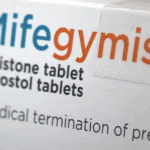Blog Post
Supreme Court lets Texas abortion ban stand; state commits $100 million to abortion alternatives
By Jonathon Van Maren
If you have the misfortune to be on Twitter, you might get the impression that the U.S. Supreme Court just overturned or “gutted” Roe v. Wade. That is not the case, so here’s a quick primer for those who want to know what’s going on.
Yesterday evening, the U.S. Supreme Court finally weighed in on the Texas Heartbeat Act, ruling in a 5-4 decision to reject requests to block it. Chief Justice John Roberts sided with the Court’s liberals; Neil Gorsuch, Brett Kavanaugh, Amy Coney Barrett, Clarence Thomas, and Samuel Alito voted to reject the requests. The liberal judges were apoplectic, with Sonia Sotomayor’s dissent noting that: “Today, the Court belatedly explains that it declined to grant relief because of procedural complexities of the State’s own invention.” She went on:
The Act authorizes any private citizen to file a lawsuit against any person who provides an abortion in violation of the Act, “aids or abets” such an abortion (including by paying for it) regardless of whether they know the abortion is prohibited under the Act, or even intends to engage in such conduct….
Today, the Court finally tells the Nation that it declined to act because, in short, the State’s gambit worked. The structure of the State’s scheme, the Court reasons, raises ‘complex and novel antecedent procedural questions’ that counsel against granting the application, ante, at 1, just as the State intended. This is untenable. It cannot be the case that a State can evade federal judicial scrutiny by outsourcing the enforcement of unconstitutional laws to its citizenry.
It bears mentioning here that states have been getting creative in restricting abortion because of the fictitious nonsense of Roe, a decision of the Court’s own invention.
Over at National Review, Ed Whelan has a thorough rundown of the legal complexities that is worth reading. An excerpt:
The Texas Heartbeat Act was written this way to prevent abortion providers from obtaining pre-enforcement relief against state officials. Because state officials are not permitted to enforce the Act, they will have sovereign immunity if anyone attempts to sue them over the constitutionality of the statute. (The Ex parte Young exception to sovereign immunity applies only when the named defendant has “some connection with the enforcement of the act.”) State-court judges also are immune from suit, under both Ex parte Young and Fifth Circuit precedent.* In short, any abortion provider that wants to challenge the constitutionality of the Act must wait to be sued and assert its constitutional claims defensively in the private civil-enforcement action.
The success of the Texas strategy—which could, it must be said, be overturned by future court decisions—has the abortion movement in a panic. Chris Hayes of MSNBC asked if every red state would pass a similar law within weeks; Ohio senatorial candidate J.D. Vance retweeted him saying, “Let’s do it!”
Meanwhile, the law is already saving babies. An abortion worker from Whole Women’s Health went on Rachel Maddow and noted that dozens of appointments are being cancelled: “The vast majority of people don’t know they’re pregnant before six weeks…We had, I think, 55 patients on our schedule at Ft. Worth, and only 5 patients are able to be seen under the new restrictions in Texas.”
Of course, nearly all of the commentators are ignoring the fact that Texas is also investing $100 million in the Texas Alternatives to Abortion program, which provides services ranging from job skills training, diapers, baby formula, parenting classes, and free counseling. The eligibility for this program is incredibly broad:
The program is available to any Texas resident who is a U.S. citizen or legal immigrant and is:
- The biological mother or father of an unborn child.
- The biological mother or father of a child, for up to three years postpartum.
- The parent, legal guardian or adult caregiver of a minor who is a program client.
- A parent who has experienced miscarriage or loss of a child. These clients are eligible to receive counseling, referrals and other relevant services for up to 90 days after the miscarriage or loss.
- An adoptive parent of a child of any age, for up to two years after adoption finalization.
This is what the pro-life movement stands for: Legal protections for all human beings, and assistance to all those who need support during pregnancy and child-raising. This is a huge step forward for pre-born human rights, and Texas is leading the way.









Roe hasn’t been overturned, but the justices do tell us something important. Pretty much the only way a justice can uphold Roe is if he has an ideological or political (e.g. concerns about court-packing or the court’s popularity) commitment to abortion on demand, and is willing to keep this commitment at all costs (respect for the Constitution, rule of law, or democratic process be damned). By refusing to intervene in this case, leading to a total shutdown of the abortion industry, five of the justices clearly rejected this approach. With that in mind, it’s a good reason to be optimistic that they’ll come through in Dobbs v. Jackson WHO.
The first good reason, yes. Very encouraging.
Not the only one. Actually picking the case as one of the few they’ll hear this term, when the only “interesting” thing about it is that it gives the judges a clean opportunity to directly revisit Roe (rather than delving into side issues like parental consent or admitting privileges), is also significant.